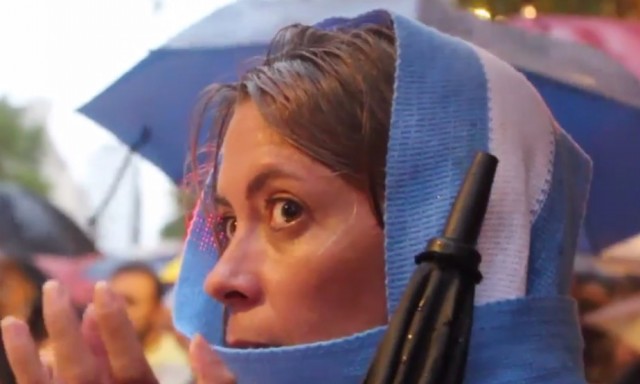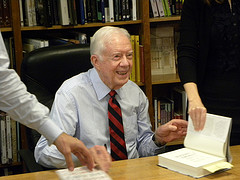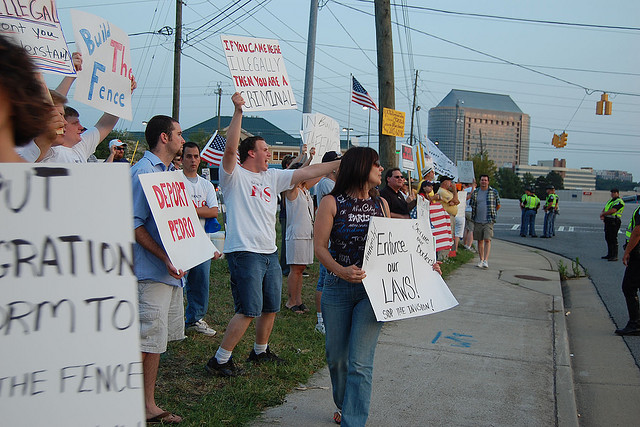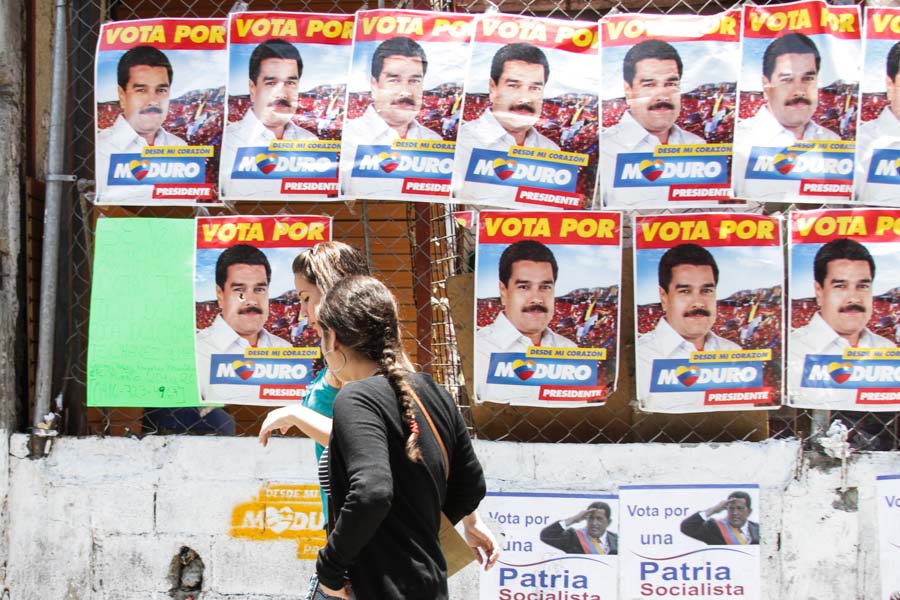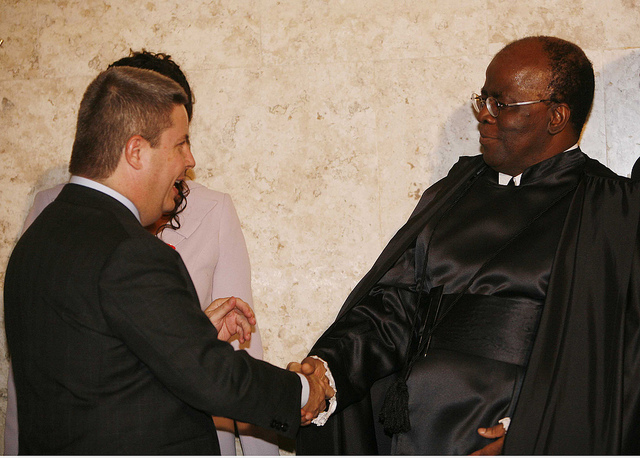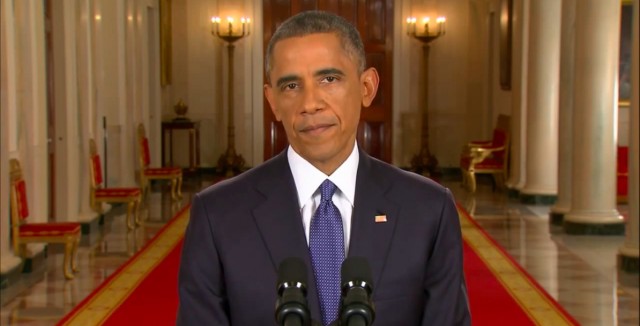
Latin America: Week in Review, North America, United States
Obama Reluctantly Complies With Judge’s Injunction on Immigration Order
February 18, 2015 By Staff
Top Story — President Barack Obama was forced to suspend on Tuesday the first phase of his executive order on immigration, which would have gone into effect Wednesday, after a Texas federal judge filed an injunction late on Monday that, for the time being, blocks it from taking effect.
Judge Andrew S. Hanen’s ruling will bar up to 270,000 undocumented immigrants who arrived in the United States as children from applying for protection from deportation, challenging Obama’s November executive order to overhaul the country’s immigration system after failing to reach an accord on the issue with congressional Republicans.
“I disagree with the Texas judges’ ruling,” Obama told the press on Tuesday in reference to Hanen’s decision to halt the start of the immigration program over what the judge argued was an unlawful overreach by the president to enact sweeping reforms. (our link to the transcript should go here)
“I’m confident that it is well within my authority and the tradition of the executive branch’s prosecutorial discretion to execute this policy,” Obama said. A statement released by the White House further stressed the legality of the order, saying that, “The Department of Justice, legal scholars, immigration experts, and the district court in Washington, D.C. have determined that the President’s actions are well within his legal authority.”
In issuing the ruling, Hanen sided with a lawsuit filed in December by 26 states. The federal judge found that the lawsuit cleared the minimum legal requirements necessary to continue, and further stated that the Obama administration had not followed the required administrative steps to enact the executive order. Hanen has been a vocal critic of Obama’s immigration policies in the past.
Hanen’s injunction is temporary, and Obama has said that the Justice Department will appeal the ruling.
“I think the law is on our side and history is on our side,” the president said.
Headlines from the Western Hemisphere
North America
- Fears that children crossing the border from Mexico to the United States are responsible for the current measles outbreak are unfounded, according to an article in the Los Angeles Times, as Honduras, Guatemala and Mexico all have rates of measles immunization comparable to that of the United States.
- The governor of Texas — an outspoken opponent to Obama’s executive action on immigration reform — has vowed to double the state’s spending on border security with Mexico, saying that Obama has failed to do enough to curb immigration to the United States.
- The next round of negotiations between Cuba and the United States will take place in Washington on Feb. 27, with U.S. senators hopeful this round of talks will resolve key issues, including U.S. support for dissident groups that Cuba views as illegal.
- Meanwhile, Americans are anticipating new business and travel opportunities in Cuba, including the potential for medical tourism that might allow Americans to receive medical treatments in Cuba for a fraction of the cost of similar procedures in the United States.
Caribbean
- Haiti has cancelled the last day of Carnival celebrations after a low-hanging electricity cable electrocuted a hip-hop group atop a float, spurring a mass panic that left at least 18 dead and 16 injured.
- Brazil is set to fund the majority of a $1 billion planned project in Cuba, which aims to modernize the Mariel port and build a “special development” zone that will become a hub for energy and industrial production.
- Famed Cuban country singer Celina González, known for popularizing a rural form of the famous Cuban “son” music and for her loyalty to the Cuban revolution, died in Havana at the age of 85.
Central America
- Drug enforcement agents from the United States and Guatemala have joined forces in “Eye of the Falcon,” an operation to fight drug-trafficking in Guatemala with air, sea and land forces.
- Rates of homicides and burglaries are on the rise in Costa Rica, according to officials, though the country remains relatively safe in comparison to its Central American neighbors.
Andes
- Peru’s President Ollanta Humala replaced five ministers in his cabinet on Tuesday, in an effort to appease a growing opposition bloc as his popularity wanes amid an economic slowdown and series of scandals involving his administration.
- As Venezuela’s economy continues to crumble, the country’s wealthy elite are increasingly hiring private bodyguards to protect them from high rates of violence, with many guards receiving modest salaries despite the high-risk nature of their work.
- A newspaper columnist in Medellín, Colombia was fired for claiming that “god was wrong” in rejecting homosexuality in the Bible, in response to a study released by a Colombian university that concluded that homosexuality was an illness.
Southern Cone
- Argentina has asked the United States to include in its ongoing nuclear talks with Iran a discussion of the fatal 1994 bombing of a Jewish center in Buenos Aires, which is currently the center of a political scandal that has rocked the country in recent weeks. The fallout following the death of the prosecutor building a case against Argentine President Cristina Fernández regarding the bombing has generated tension between the United States and Argentina.
- South America’s drug trade is in part shaped by enormous price discrepancies between countries, reports InSight Crime, where, for example, marijuana can sell for almost 20 times as much in Chile as in Paraguay, pushing Paraguayans to sell beyond their country’s borders.
- Heavy rains in Argentina on Sunday have left seven people dead and one missing, leading to an evacuation of 1,000 amid blackouts and flooding.
Image: YouTube
Subscribe to Today in Latin America by Email
< Previous Article
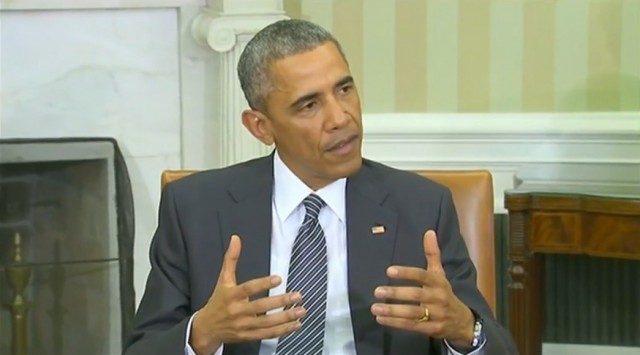
February 18, 2015 > Staff
Transcript: Obama’s Statement to the Press Over Immigration Ruling
Next Article >
